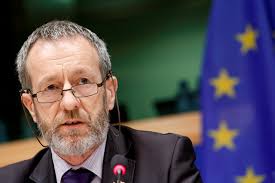Ireland South MEP and Fine Gael Leader in the European Parliament, Sean Kelly, has called for continued ambition and coherence under the new EU budget on the EU Investment Plan in order to ensure businesses across the EU can be supported and given greater access to finance.
Mr Kelly, who recently concluded negotiations with the European Council on the €650 billion InvestEU Programme, also criticised what he termed the “consistent inexplicable stance” of Sinn Féin in their opposition to EU supports for businesses.
“For the last five years, the EU Investment Plan, or Juncker Plan, has been enormously successful in triggering additional investments across the EU. By the end of 2020, it is expected to reach €389.8 billion in additional investments, benefitting almost one million EU small and medium-sized enterprises,” he said.
“With 33% of the investment, small companies have been the biggest beneficiaries of the Juncker plan, followed by innovation, energy and digital. This needs to continue into the new EU budget period.”
Mr Kelly described the 2021-2027 Juncker Plan as “a programme with enormous potential for small businesses given they are now set to receive more targeted support than before. However, a new Commission will have its own new priorities. It is vital that we maintain the successful emphasis we have had for the last five years on mobilising investment so that InvestEU goes on to be the success that it has potential to be.”
He added: “With the European elections coming up, it will be important for citizens to know that Sinn Féin have consistently opposed these successful investment initiatives in the European Parliament.
“This is a plan that has resulted in more than 30,000 gigawatt hours of additional renewable electricity supplying around 8 million homes, brought safe drinking water to 17 million people, and built or renovated half a million social or affordable housing units across the EU.
“In opposing the EU Investment Plan, Sinn Féin are actively seeking to prevent money being directed towards areas they claim are their policy priorities”, he concluded.


